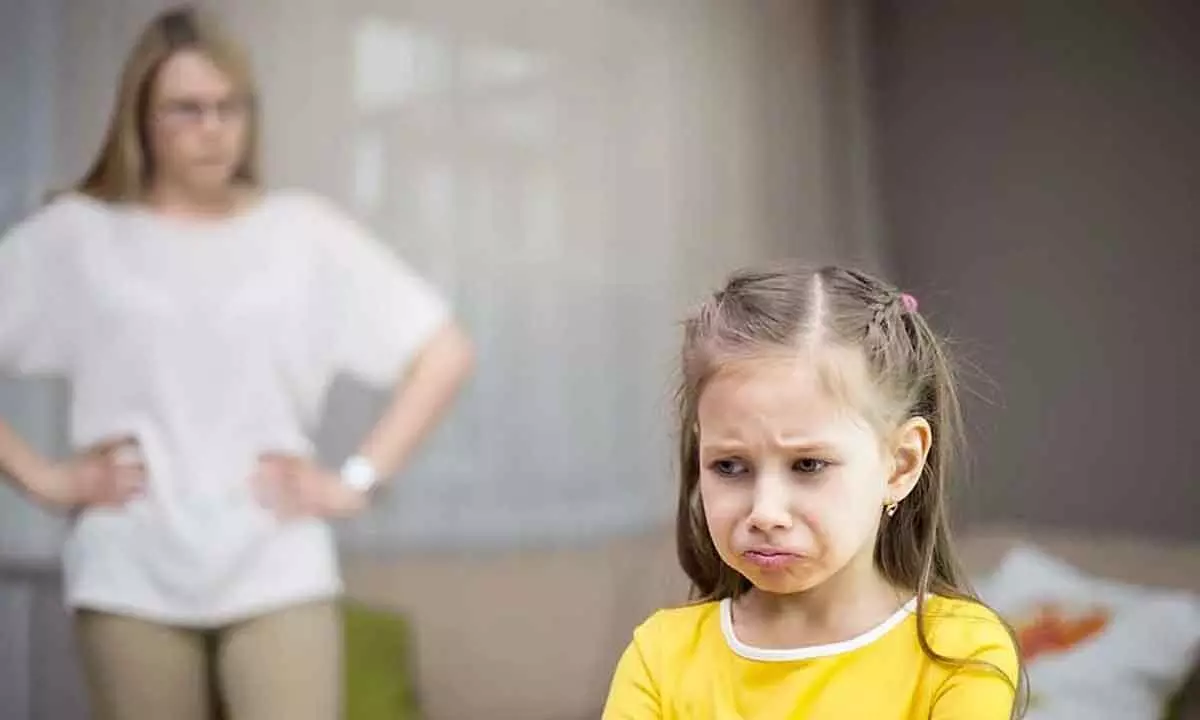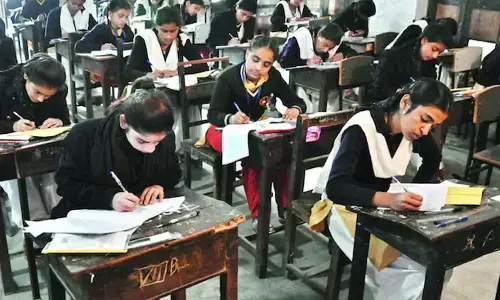Expert advice to manage anger in kids
Share :

Baghwala: Anger is merely an emotion and kids do get every emotion, and as adults how we help them navigate through each emotion can make a huge difference.
There is a saying, “We become parents and realise our triggers due to childhood trauma. And while we learn to heal and navigate through it, we give some trauma to our kids again”.
Anger is one such emotion we learn to manage through our parents and surroundings and our kids learn to manage their anger from our reactions and words.
We need to drill this in our heads and heart, “Kids are through us and not for us”. Kids give us an amazing opportunity to see how a baby (blank slate) is evolving as an emotionally and intellectually smart being. Change is a natural and irresistible process. We cannot stop it but we can definitely control it.
This is true for everything, yes even when it comes to raising kids. Kids can be moulded and outcomes can be controlled.
Kids experience every emotion that we experience as an adult, happiness, sadness, anxiety, frustration, violence, love, empathy, etc. it’s human to feel all emotions there is no such thing as negative or positive emotion when we deal with all emotions mindfully.
As an adult, we have developed a method of coping up with each emotion. The factors that determine how we deal with any motions are:
• How you were guided to handle that emotion until the age of 5.
• How you were treated for expressing that emotion.
• Influence from the people around you and society.
• As a child, if you were guided to speak out whenever you need help, as an adult you will be ok in asking for help.
• As a child, if you were shamed for asking for help with things you do not know or cannot do, you will feel shameful every time you have to seek help.
• As a child, if you have seen your parents not accepting help from others you will burn out but never accept help.
So, it all narrows down to how mindful we are or what we try to be while feeling, communicating, and reacting emotionally. Anger is one such emotion when handled mindfully can be resourceful to kids, it can help them understand their own shortcomings and help them grow and achieve great things in life. So what can be done to help kids navigate through anger or what factors should be taken care of to raise mindfully aware kids for the emotion of anger?
Terms used frequently (OM: old method, MM: mindful method) Identify your own emotion and label the feeling correctly in front of the child:
• OM: When an adult feels anger, there is an automated response saved (coping mechanism for each feeling) and without realizing the adult would react that way, either shout or scream or hit.
• MM: When an adult feels anger, he can communicate to a child in these words. I am just feeling angry right now and do not want to react to it, can we speak after some time? Or I am feeling angry and might burst out in emotions. Please excuse me and just leave the room till you calm down.
This will help the child identify the emotion and when he feels similar it will be easier for the child to express. The child understands what is happening with the adult and will model this behaviour as a kid and also when he becomes an adult.
Detach the feeling from the person, scenario, or event:
• OM: I am angry because you did XYZ because you never listen because you are screaming.
• MM: I am feeling angry due to my emotional vulnerability and not because the person, scenario, or event is bad. Yes, in some cases it will be bad but learn to detach from the person, scenario, and event and calm yourself and then see what can be done to solve it.
Kids have breakdowns, and tantrums because they are navigating hard feelings and in that moment all they need is a calm parent to help them navigate through the storm.
Hence anger in kids can be managed only by managing emotions in adults. But there are certain psychological conditions when kids cannot manage or navigate their emotions even after the parents try to be mindful and monitor the surroundings. We see such conditions often in the clinic under the diagnosis of autism and homeopathy with counselling has worked wonderfully in calming the nerves without giving any numbing effects of high quantity chemically loaded drugs. And this is therefore the future of psychology and medicine.








